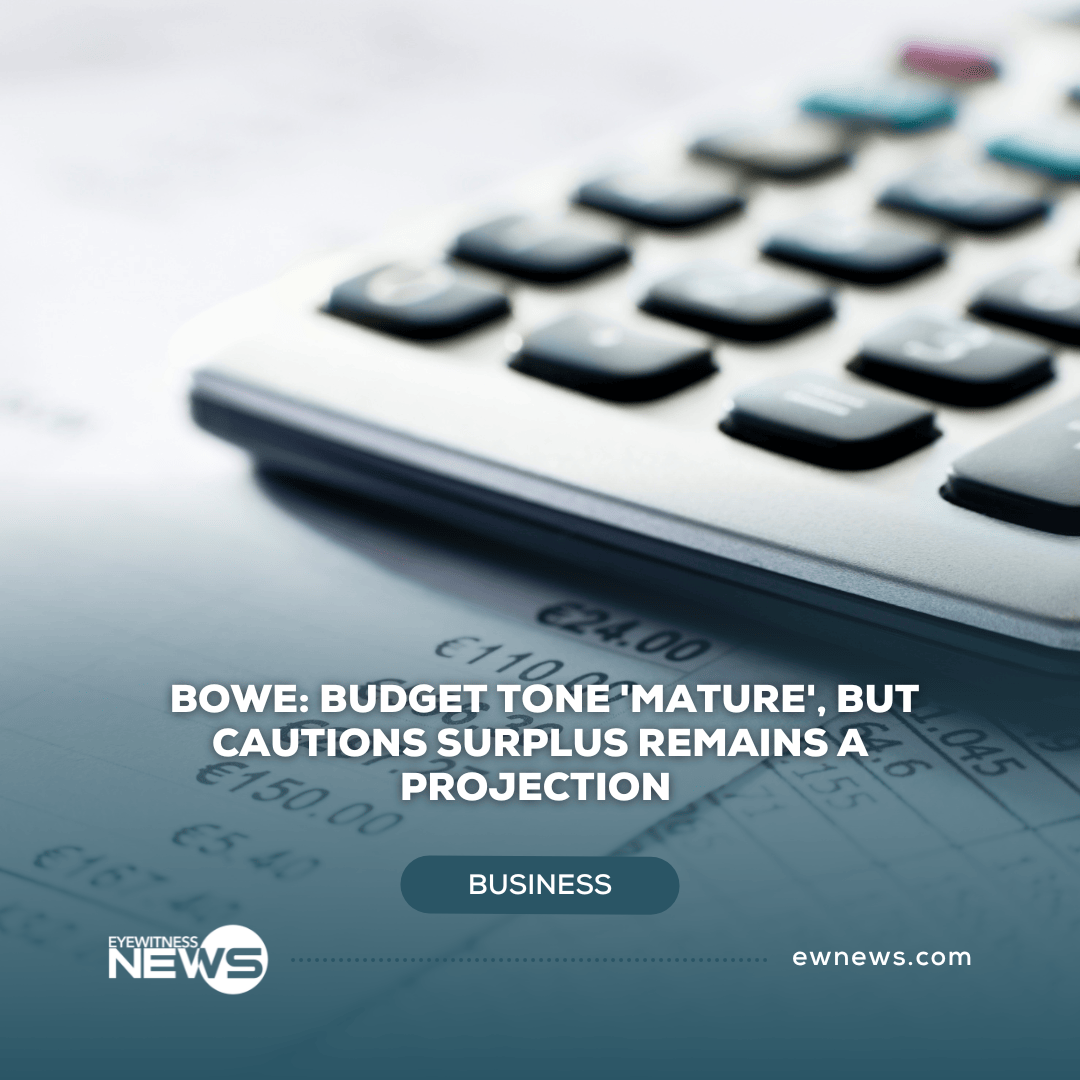NASSAU, BAHAMAS — Describing the 2024/25 Budget Communication as one of the more “mature” in recent memory, well-known financial expert Gowon Bowe, Group Chief Executive Officer of Fidelity Bank & Trust International Limited, has urged caution over the government’s projected fiscal surplus, stressing that it remains a projection.
However, Bowe also highlighted what he called a glaring omission from the Communication: the National Development Plan (NDP). “Many of the future plans referenced in the Communication require a generation to fully implement,” he said. “But in the absence of the NDP, what assurances are there that the commitment will hold to get these things achieved?”
Praising the tone of the Communication, Bowe noted: “It did not get into excessive finger-pointing and grandstanding. But it requires a lot of supporting empirical evidence to back what I’m going to call the projected outturns and fiscal performance next year.”
While the budget outlines a projected surplus for the upcoming fiscal year, Bowe underscored the distinction between projection and performance. “The government hasn’t achieved a fiscal surplus. It’s projecting or budgeting a surplus. And I don’t say that to take away from the projection being one that is focused on fiscal responsibility—but it has to be achieved.”
Bowe questioned the revenue assumptions underpinning the forecast, particularly the government’s projection of $3.9 billion in revenue. “After nine months, even when January to March is traditionally our strongest intake, the trajectory was about $3.3 billion,” he noted. “To go from $3.3 billion to $3.9 billion, that’s a 20 percent increase, and we need more explanation.”
He acknowledged the government’s recognition that a recent GDP recalculation had expanded the official size of the economy, but emphasized that this does not translate into new economic activity or guaranteed additional revenues. “This was just activity that was not previously captured—it did not necessarily translate into new activity that people were seeing.”
Bowe pointed to several revenue-enhancing measures in the budget—such as taxes on cruise line private islands and foreign-owned properties—but said those measures alone are unlikely to close the revenue gap. “Even if looking at the ones that he specifically highlighted, it looked somewhere in the order of $200 million to $300 million—not $600 million. At the same time, he indicated reductions in Customs duties and VAT.”
Turning to spending, Bowe noted the structural rigidity of government expenses. “Expenses are hard and fast. So it doesn’t have anything to do with GDP. If GDP is down, are we going to reduce our expenses? There’s nothing that says we will.”
He further warned that the budget should account for potential external shocks, especially from the United States, the Bahamas’ largest tourism source market. “What happens if GDP doesn’t perform? What impact does that have on revenues?”
He also flagged the absence of any reference to the Grand Bahama airport and hotel redevelopment deal in the Communication, raising questions about possible fiscal implications. “What was not referenced or clarified in the communication—but can be clarified in the numbers—is the status of the deal in Grand Bahama: whether or not the property has been conveyed and money changed hands as part of a sale and purchase agreement, or whether that’s just an agreement to purchase with conditions,” he said. “While there was reference to airport infrastructure, it was interesting that it only mentioned Cat Island, Exuma, and Eleuthera.”
Calling for deeper analysis of past performance, Bowe said too often budget exercises fail to adequately reflect on actual outcomes. “There’s insufficient analysis of the revisions to previous outturns. The budget also has projections for two fiscal years beyond next year—but if this year didn’t go as planned, are those outer years reliable?”
Ultimately, he concluded, “The proof of the pudding is in the eating. A budget is just that—a forecast. We need to challenge—not to discredit—but to give the government a chance to demonstrate the credibility behind the numbers.”


















